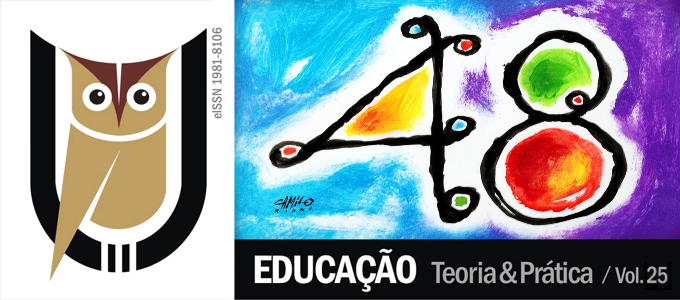Relations between Autonomy and Political-Pedagogic Project of Public Schools
DOI:
https://doi.org/10.18675/1981-8106.vol25.n48.p54-66Keywords:
School Autonomy, Political-pedagogic Project, Institutional development.Abstract
Derived from broader research, this paper discuss the development of autonomous public schools through the political-pedagogic project. From the analysis of data collected in qualitative research, the text presents as they occur and are predicted interactions between school and community in the social, government and its implications for the organization of the political-pedagogic project of public schools and its relationship to the development of autonomy. The analyzes indicate that for the pedagogical work and school meet the educational needs of the community must be based on a political-pedagogic project socially referenced. And also that the development of school autonomy through political-pedagogic project is located in contradictory space where advances and retreats are present and are needed. In addition to these questions it is concluded that there is still, in the educational environment, much difficulty in understanding how the political-pedagogic project can assist in achieving a democratic school and autonomous.Downloads
Additional Files
Published
How to Cite
Issue
Section
License
Authors who publish in this journal agree to the following terms:
a) Authors assign copyright to the journal, with the work simultaneously licensed under the Creative Commons Attribution License that allows sharing of the work with acknowledgment of authorship and publication in this journal.
b) The policy adopted by the Editorial Committee is to assign copyright only after a period of 30 months from the date of publication of the article. After this time, authors interested in publishing the same text in another work must send a letter to the Editorial Committee requesting the release of the assignment of copyright and wait for a response.
c) This journal provides public access to all its content, since this allows greater visibility and reach of published articles and reviews. For more information on this approach, visit the Public Knowledge Project, a project that developed this system to improve the academic and public quality of research, by distributing OJS as well as other software to support the public access publication system to academic sources. The names and email addresses on this website will be used exclusively for the purposes of the journal and will not be available for other purposes. This journal provides open any other party  This work is licensed under a Creative Commons License
This work is licensed under a Creative Commons License











